11 Questions & A Cup of Coffee: Author and Former Army Ranger Luke Ryan
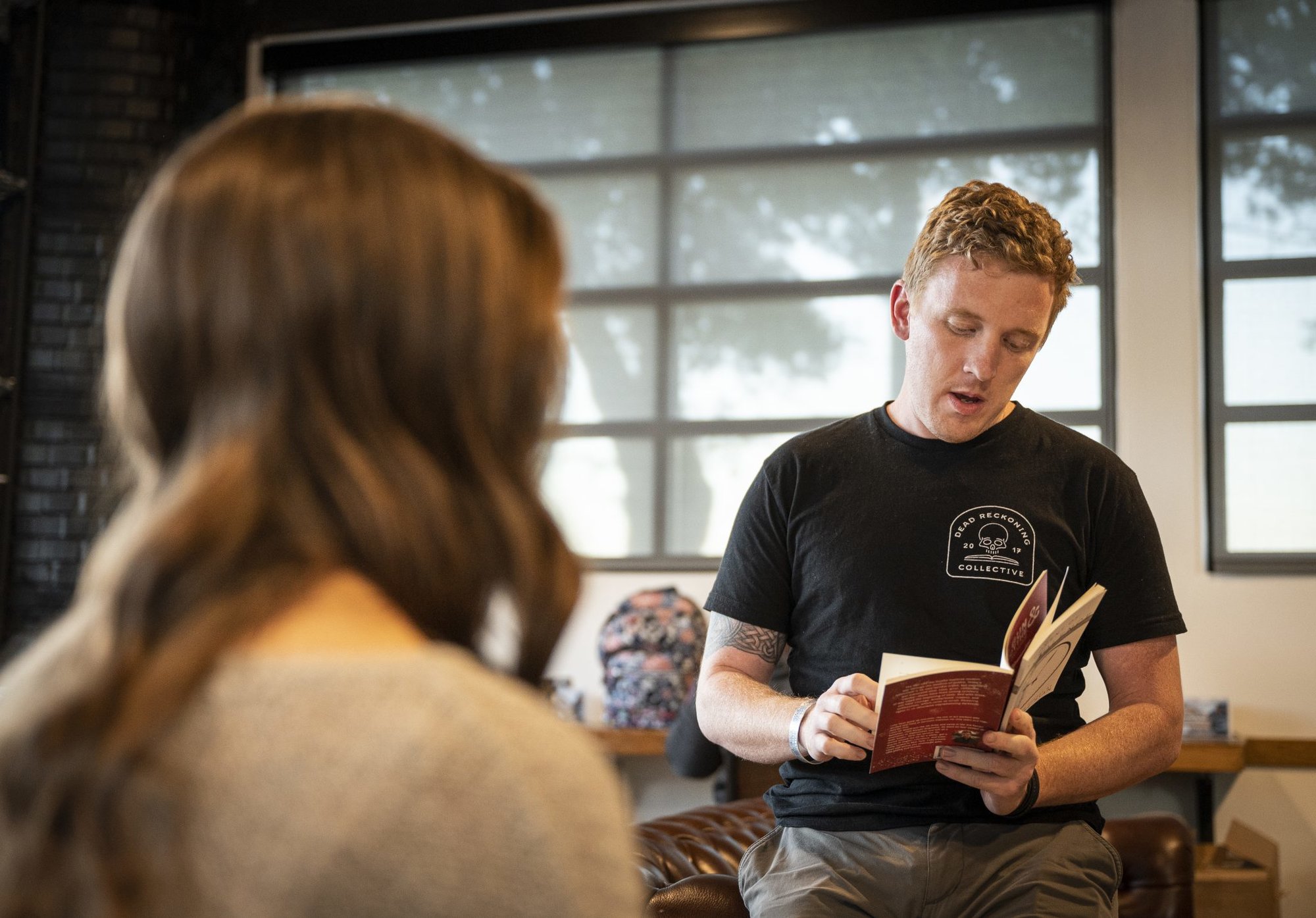
Luke Ryan reads from his latest novel. Photo by Ethan E. Rocke, courtesy of Luke Ryan.
Luke Ryan grew up overseas, spending nine years in Pakistan and five years in Thailand before returning to the United States and joining the military. Since leaving service, Ryan got a degree in English literature and began working in the media industry. Now the former Army Ranger is the social media manager at Black Rifle Coffee Company, an associate editor for Coffee or Die Magazine, and the author of The First Marauder, a post-apocalyptic novel set in Florida, and two books of war poetry — The Gun and the Scythe and A Moment of Violence.
We recently sat down with Ryan to talk about writing, social media and, of course, coffee in the latest installment of 11 Questions & A Cup of Coffee.
This interview has been edited for length and clarity.
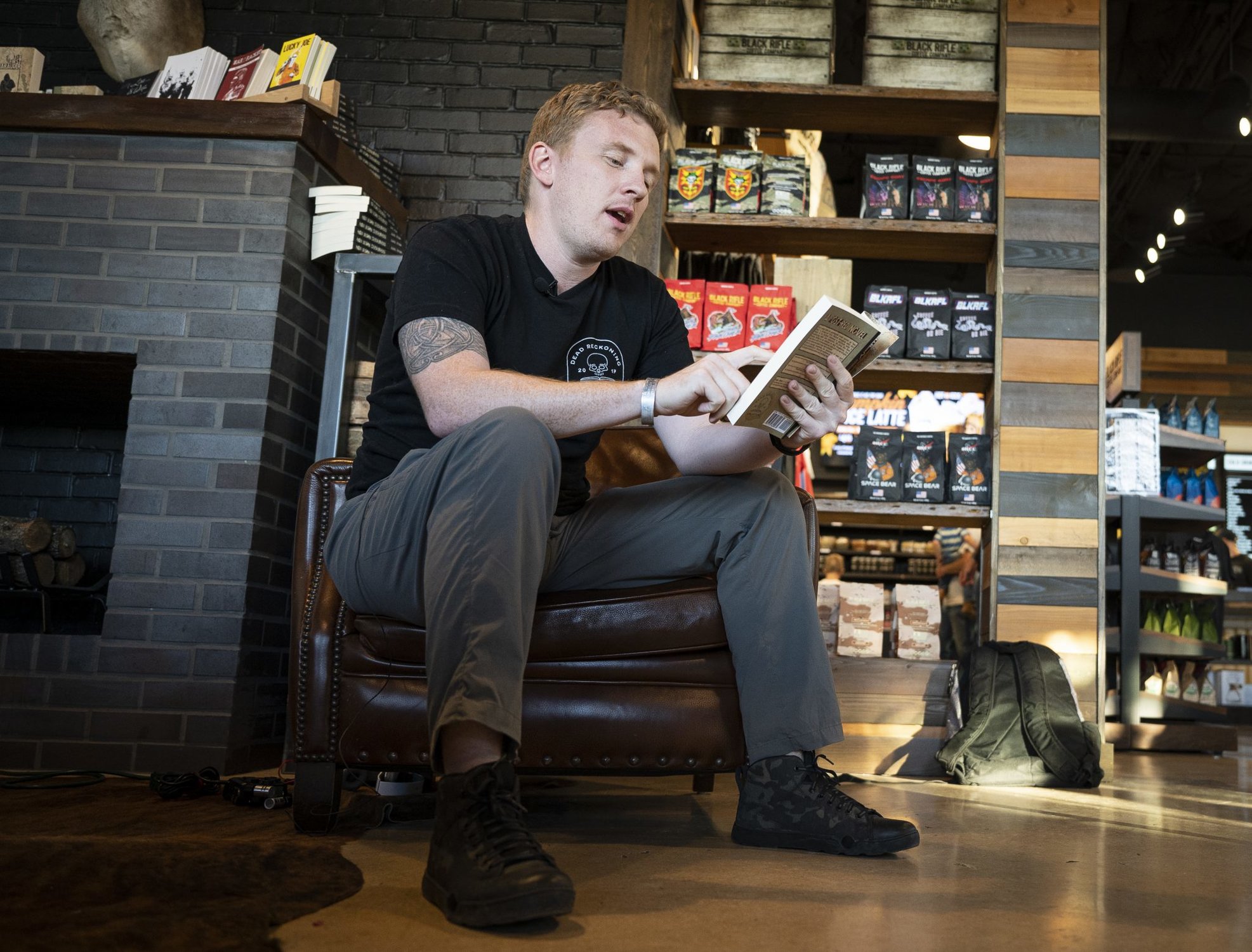
COD: How do you make your coffee?
LR: I make my coffee typically with pour over, I have a Chemex that I use. But working at a coffee company, it definitely gets you in the mind-set where you want to try to make coffee in new ways. So I’ve been experimenting with a few different ways. And the next one on my list is to try to master the French press. So I’m very interested in trying that out a little bit more. I’ve also been getting into our cold brew pouches a little bit.
COD: How do you take your coffee?
LR: I take my coffee black. I used to have cream in it, but I’ve been trying to — in my endeavors to appreciate coffee a little bit more — I’ve been weaning back on the cream, and I’ve enjoyed it quite a bit. So I’ve been taking it black.
COD: What is the most extreme or bizarre place you’ve ever gotten or made a cup of coffee?
LR: The most bizarre place I’ve ever had a cup of coffee was definitely way out — about two days’ walk — into the jungle of Burma, Myanmar. Really pretty awful instant coffee that had been exposed to the elements. But it was pretty damn good at the time.
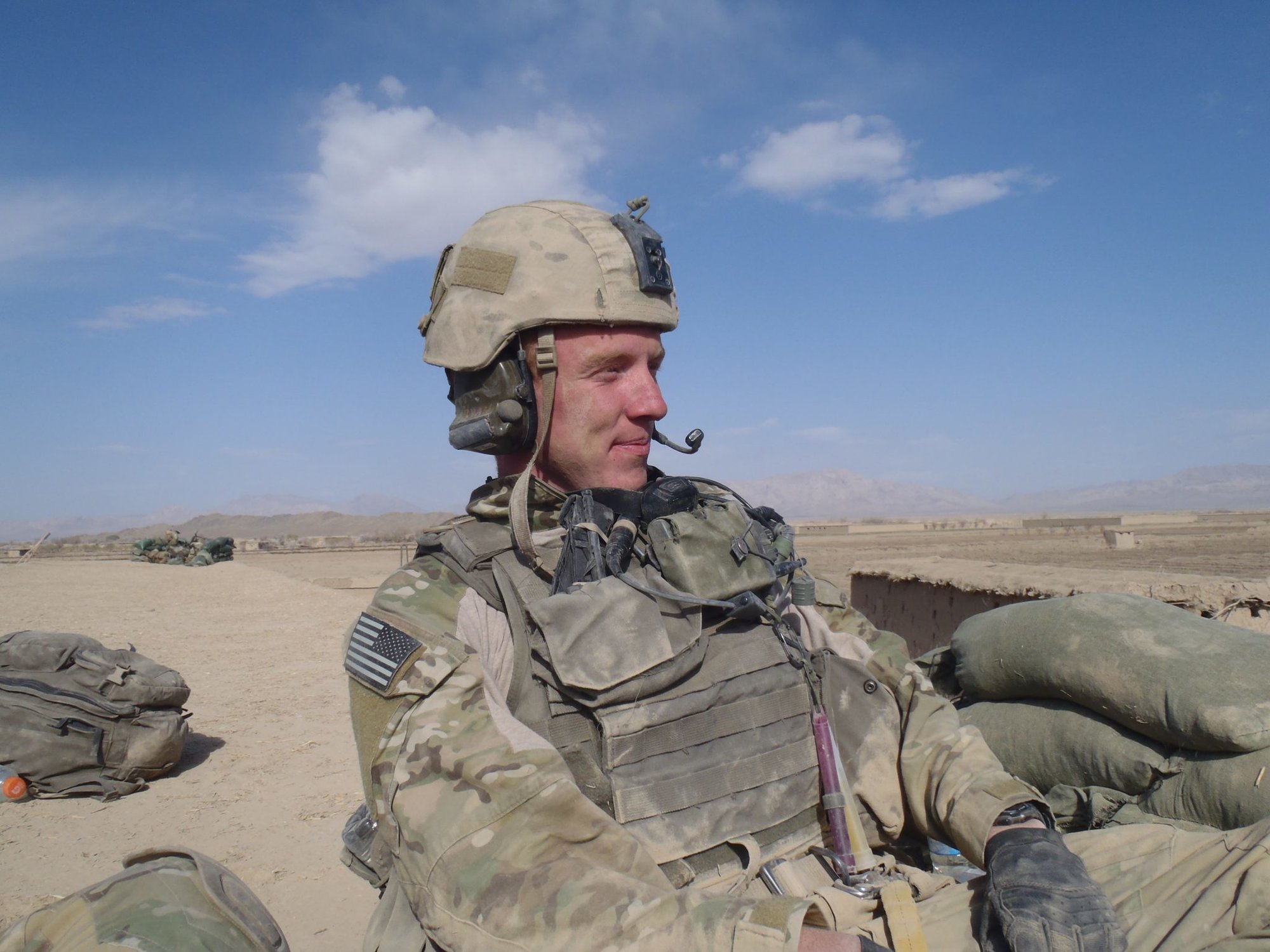
COD: What is the hardest thing you’ve ever done, physically or mentally — or both?
LR: The hardest thing I’ve ever done physically is probably kind of the obvious answer, which is just life in Ranger Battalion — everything from RASP to Ranger School and the training cycles and deployments and all that.
I would say mentally, making that transition out of the military and coming into regular life. I didn’t feel lost — I felt like I had a lot of really specific goals — but things don’t always align the way that you want them to. And that can be mentally challenging. And that was a pretty challenging time for me, as well as starting to discover a lot of things that are kind of buried under the surface. That was another pretty mentally challenging time for me. And that’s one of the reasons I really dove into writing because it helped me articulate and work through those things.
COD: What do you think is the most misunderstood thing about you or the work that you do?
LR: The most misunderstood thing about the work that I do is that social media is an afterthought, that it’s a simple process to just create a piece of media or content, and then to just throw it up there. And then it’s kind of the start and end of it. It’s definitely a huge, concerted effort.
I’ve worked in a lot of forms of media, like journalism, television — and social media is definitely the most work-intensive, from coming up with an idea for some piece of media that you’re going to throw out there, all the way to the end of seeing it across the finish line, putting it in front of people, letting them enjoy it. And depending on what type of content you’re putting out there.
COD: What motivates you to do what you do?
LR: Writing or creating in some way, shape, or form. I love to write fiction novels, novellas, I love to write poetry. I just love creating stories, and I really, really am passionate about diving into all of those kind of unseen things that bubble under the surface of the human experience and figuring out what they are and figuring out how to articulate them and just unpacking all the things that life has to offer through writing in particular.
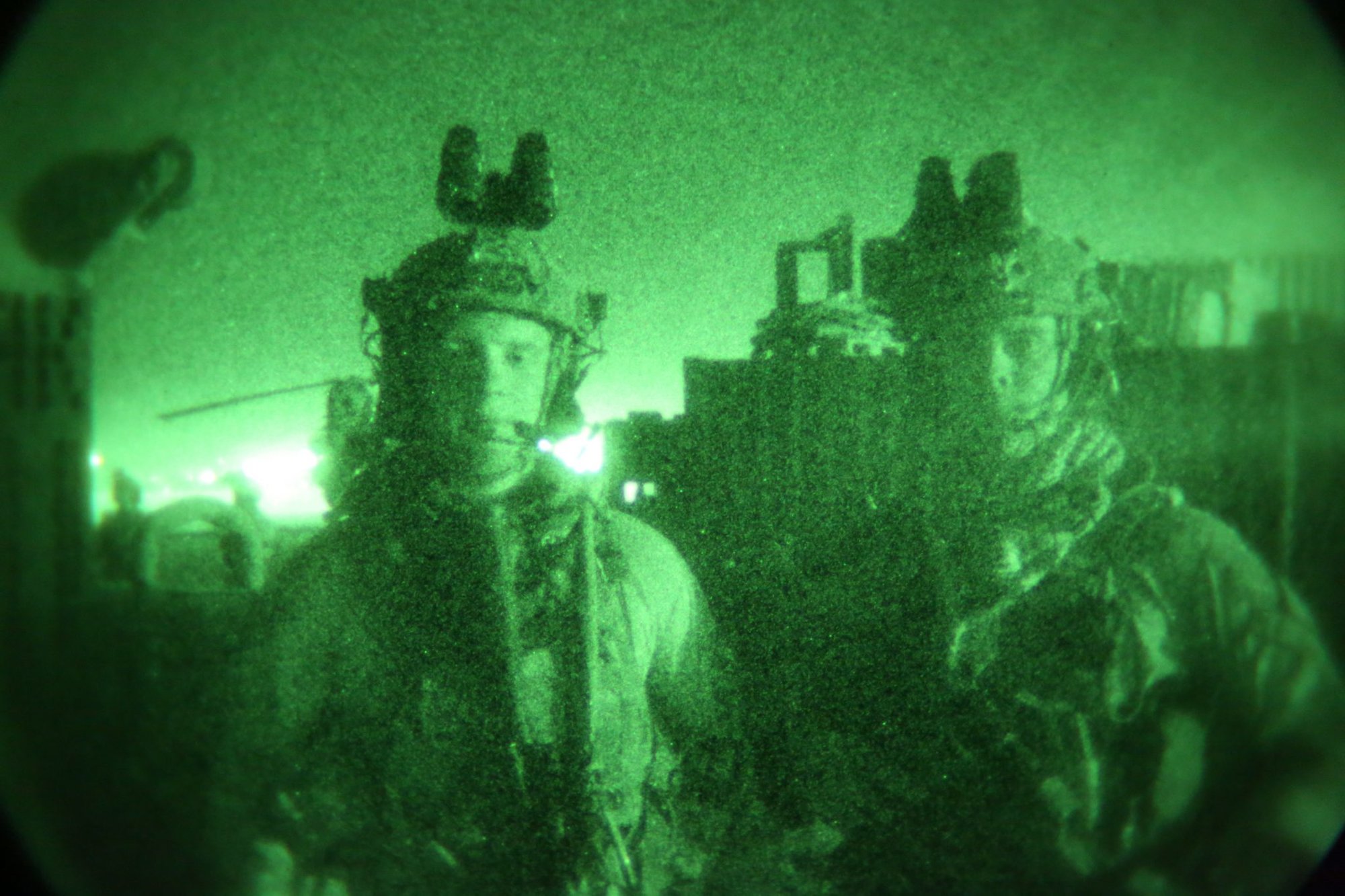
COD: How do you define success?
LR: I define success by the positive impact that I have on people. And you can measure that in a bunch of different ways — how many people run up to you and say, “Oh, I love this thing that you did,” or how much money you made, or how many impressions or shares or whatever have been garnered from a piece of media or something that I wrote, something like that. But as long as I feel like I’ve had a positive impact — that I really feel that in my bones — that’s what I want. I want to have a positive impact on the world around me, starting with the smallest circles, you know, my family and really close friends, and then expanding to the tight-knit community that I’m really lucky to be a part of, the veteran community. And, you know, my friends in that community and then expanding beyond that circle to just, you know, the American community, the international — a crowd that I’m also lucky to be a part of. I want to feel like I have a definitively positive impact on those people’s lives. And if I can do that, then I consider myself successful.
COD: Mountain view or ocean view?
LR: Definitely a mountain view because mountains typically have trees, and beaches make me sunburned.
COD: If you could have any superpower, what would it be?
LR: If I could have any superpower, it would definitely be the ability to slow or stop time. One thing that I never have enough of is time in a day, and I would love to be able to sit down and do something at the very end of the day and spend like four hours on it. Whether it’s finally getting in a workout that I feel like I needed to get or being able to sit down and write and get in that headspace finally, and Oh, man, it’s like 1 a.m. and I’ve got to work in a few hours. I’d love to be able to just slow down time. Also, if you get in a gunfight it would be really cool, you’d feel like you’re in The Matrix.
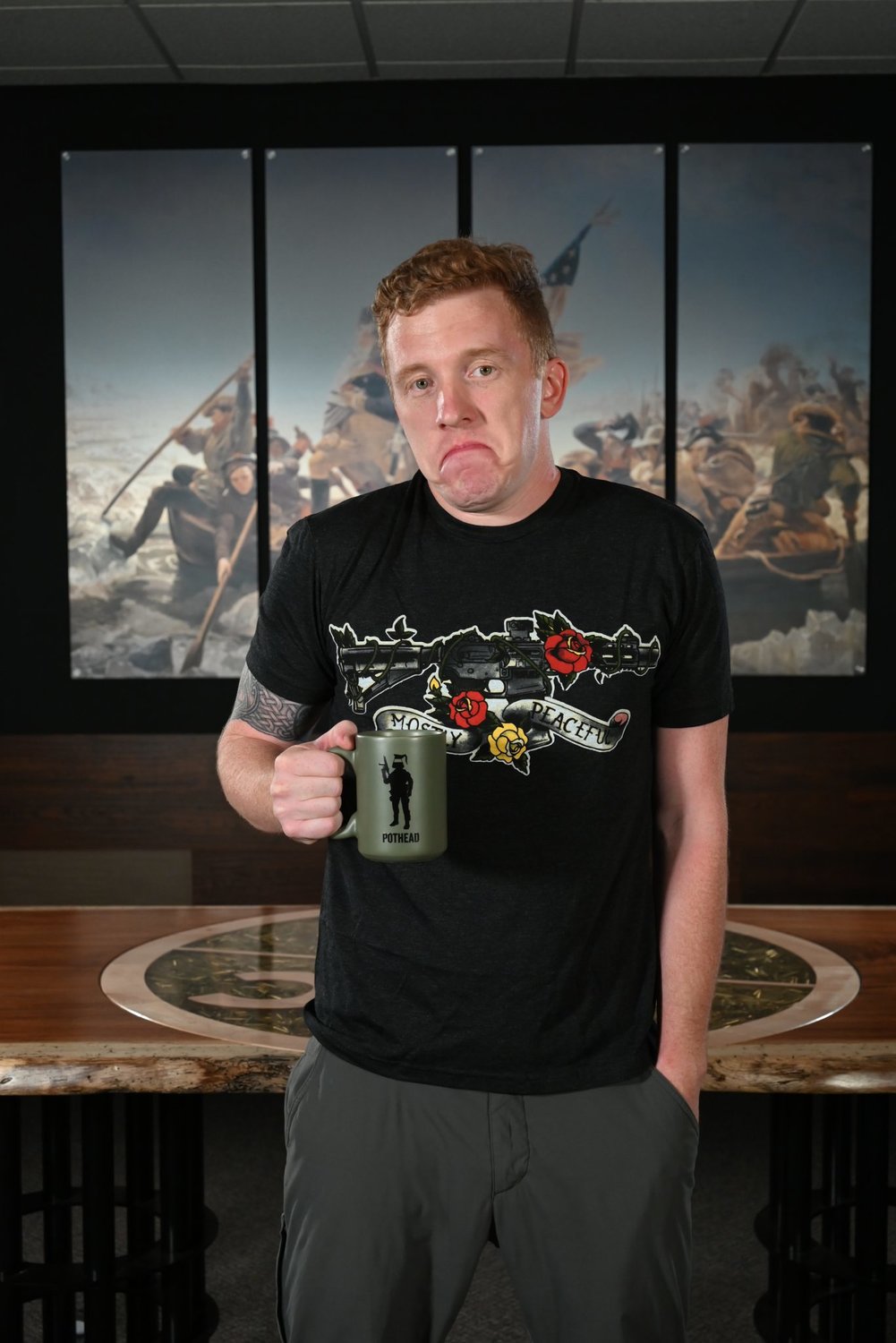
COD: What are your hobbies outside of what you’re known for?
LR: A lot of people probably don’t know about me is that I really, really love to run a lot. I like running for long distances, long periods of time, and I listen to very slow soundtrack music when I do it. I listen to The Leftovers soundtrack, the soundtrack to The Fountain. Pretty much. I’m not necessarily listening to really epic action soundtracks, but less Mad Max and more Schindler’s List, when I’m running for somewhere between 3 to 10 miles at a time.
The music really gets me in this headspace that I love to be in, which is where I can kind of lose myself in these emotionally charged musical pieces. And it gets me in the frame of mind that I want to be in when I write. And it really spurs a lot of creativity. Whether I’m thinking about a story that I’m working on, or I’m just getting myself in that sort of emotional state where I’m — it’s kind of a form of vulnerability, I guess, but I like doing that through specifically physical hardship.
COD: On a scale of 1 to 10, how confident are you that you could survive a post-apocalyptic world — 1 being that you are dead on day one, 10 being that you are the ruler of the new world order?
LR: I would say in an apocalypse, I’d be at around a 7 on a survival scale. I would know how to survive and I’d be good at working with other people to survive. But I’m a sucker for people in need and stuff like that, so I would wind up getting myself killed running around and trying to help somebody out who turned out to, you know, just want what I have and shoot me in the face or something.
Also, it depends on what kind of apocalypse because if it’s like, what’s that movie? It’s like 1000 Days of Night or something — like if it was nighttime all the time, I’d be super good. But if it was like Mad Max, where it’s like daytime all the time, I’d get skin cancer and die.
Read Next: Army Ranger Veteran Luke Ryan Didn’t Just Fight in War-torn Countries — He Grew Up in Them
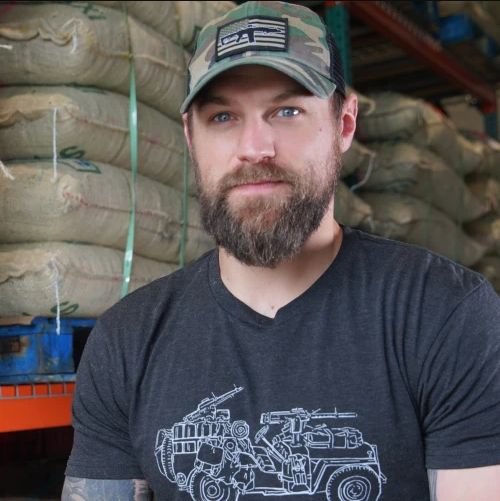
Logan Stark is the VP of Media for Black Rifle Coffee Company. A Michigander by birth, Logan joined the US Marine Corps shortly after graduating from Greenville High School. He trained as an infantry assaultman with the 2nd Battalion, 5th Marines out of Camp Pendleton, California, and later completed deployments to Okinawa, Japan, and Sangin, Afghanistan, as a scout sniper. After his time in the Marine Corps, Logan earned a degree in professional writing from Michigan State University. While at school, he directed a film titled For the 25, which focuses on his deployment to Afghanistan. This project led to him being published in USA Today and The New York Times‘ “At War” blog … and, ultimately, his role with Black Rifle Coffee Company.
BRCC and Bad Moon Print Press team up for an exclusive, limited-edition T-shirt design!
BRCC partners with Team Room Design for an exclusive T-shirt release!
Thirty Seconds Out has partnered with BRCC for an exclusive shirt design invoking the God of Winter.
Lucas O'Hara of Grizzly Forge has teamed up with BRCC for a badass, exclusive Shirt Club T-shirt design featuring his most popular knife and tiomahawk.
Coffee or Die sits down with one of the graphic designers behind Black Rifle Coffee's signature look and vibe.
Biden will award the Medal of Honor to a Vietnam War Army helicopter pilot who risked his life to save a reconnaissance team from almost certain death.
Ever wonder how much Jack Mandaville would f*ck sh*t up if he went back in time? The American Revolution didn't even see him coming.
A nearly 200-year-old West Point time capsule that at first appeared to yield little more than dust contains hidden treasure, the US Military Academy said.












